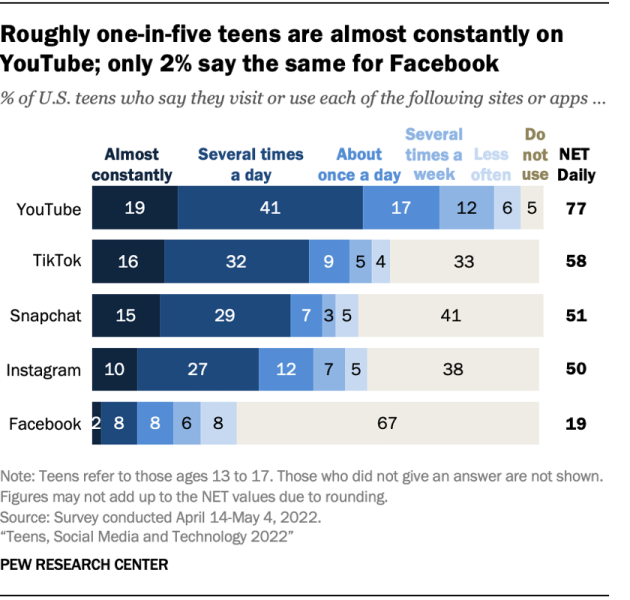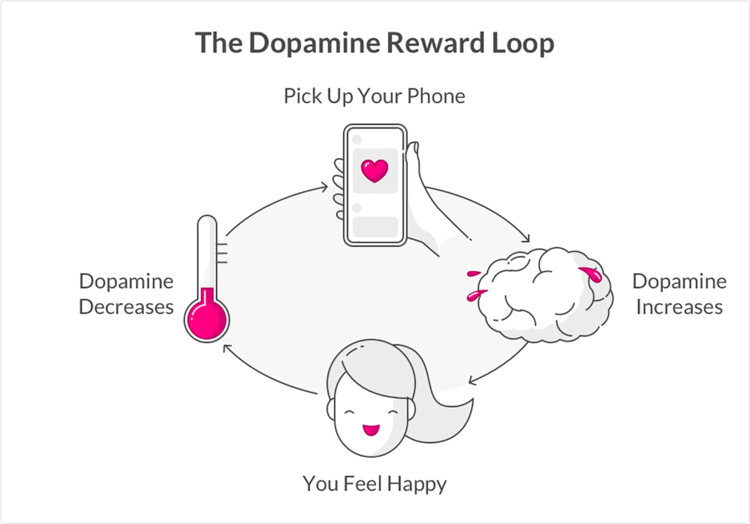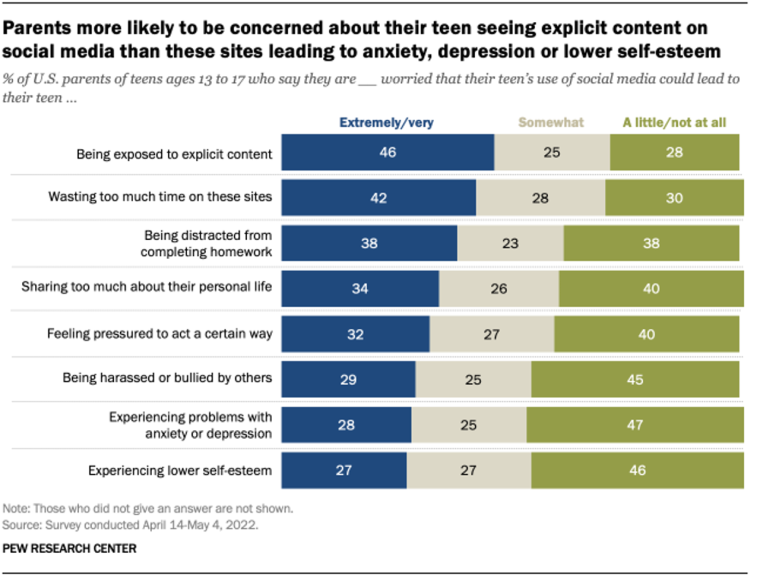Recently, more people agree that social media negatively affects both individuals and society. This agreement has led to new laws in the United States focused on the impact of social media on the mental health of young people. However, in the midst of the talks about social media’s harmful effects, many questions still need answers.
Unraveling the Impact of Social Media on Youth
According to Pew Research Center, a majority of teens use YouTube (77%) and TikTok (58%) on a daily basis, with some using these platforms almost constantly. Additionally, approximately half of teens use Instagram (50%) or Snapchat (51%) daily, while 19% report daily use of Facebook.

Emma Lembke, a 20-year-old university student, shared with the Financial Times, her personal experience with social media and its effects. She recounts feeling anxious and obsessively curating her online persona, attaching her self-worth to likes, comments, and followers. Moreover, Emma highlights how the content she encountered on social media platforms contributed to the development of disordered eating patterns and impacted her overall sense of self-esteem.
A recent report by Common Sense Media found that 50% of surveyed teens find social media important for support, advice, and creative expression. 43% stated that social media helps alleviate feelings of depression, stress, or anxiety.
However, there is a strong association between social media use and teen depression. Teens with depressive symptoms are twice as likely to use social media constantly. Another study revealed that frequent social media users report higher psychological stress (27%) compared to less frequent users (17%).
Negative social comparison and body image issues contribute to depression and anxiety. Moreover, 35% worry about unattractive photo tags, 27% stress about their appearance when posting and 22% feel bad when their photos lack engagement.

Excessive social media use is thought to trigger addictive patterns in the brain, releasing dopamine.
While anxiety and depression have always existed among teenagers, Emma emphasizes the role of algorithms in perpetuating addictive scrolling She believes that forthcoming legislation will hold platforms accountable for the harm they cause to young individuals.
Social Media and Mental Wellbeing: Examining the Evidence
The debate surrounding social media’s impact on mental health lacks a clear consensus, according to Amy Orben, head of the Digital Mental Health Group at the University of Cambridge. Orben’s research reveals a correlation between increased social media use and decreased well-being.
However, the causality remains uncertain. It is unclear whether social media usage leads to negative mental health outcomes or if pre-existing negative mental health drives increased social media engagement.
Orben stresses the importance of acknowledging other contributing factors to the decline in mental well-being among young people, such as changes in family structures, economic challenges, and societal issues. She cautions against attributing the entirety of this decline to social media alone, highlighting the need for nuanced research and understanding the complex causal networks at play.
The Rise of Legislation and Regulatory Efforts
Lawmakers and regulators have taken notice of the concerns surrounding social media’s impact on young people. Katie Paul, director at the Tech Transparency Project, highlights a bipartisan interest in protecting children online. States like California and Maryland have passed bills focusing on child safety measures and privacy regulations. Some proposals include age verification and parental controls, while others urge platforms to incorporate design changes to promote healthier online experiences.
Tech platforms, however, fiercely resist such regulations. Their lobbying efforts aim to maintain the status quo, as restrictions on young users would limit their potential advertising reach and impact their bottom line. Nevertheless, campaigners like Lembke insist that regulation is necessary, but it should focus on holding platforms accountable and providing users with more control rather than outright bans or age restrictions.
While the evidence of social media’s negative effects is not yet definitive, lawmakers feel compelled to take action based on anecdotal experiences and a sense of urgency. A significant concern for nearly half (46%) of parents with teenagers is the potential exposure of their child to explicit content on social media.

Policymakers view the increasing presence of technology in children’s lives as a crisis requiring immediate intervention.
However, some experts caution against hasty regulation without a comprehensive understanding of the issue at hand. They emphasize the importance of evidence-based policy-making to avoid unintended consequences and to ensure effective and targeted regulations.
The Future of Social Media and Youth Wellbeing
The impact of proposed legislation on social media companies remains uncertain. Stricter regulations, parental controls, and age verification measures could potentially decrease user numbers and limit the platforms’ ability to cultivate lifelong users.
Nevertheless, experts believe that the solution lies in redesigning platforms to prioritize user well-being and empowering individuals to make informed choices about their online experiences. Unfortunately, social media platforms likely will never do this on their own as it would be both a ton of work and likely less profitable.
As social media continues to evolve, it is crucial to strike a balance between protecting young users and recognizing the potential benefits of online connectivity. While regulation may play a role in mitigating harm, it is equally important to foster a collective understanding that social media platforms should serve as sources of entertainment and positivity.
Should they fail to meet this purpose, users may seek alternative platforms that prioritize their well-being and privacy.
Related Articles
- How To Use Social Media Marketing For Your Business
- Learn From Everyone Else’s Cybersecurity Mistakes – Here’s How to Keep Your Data Safe with Lessons Drawn From 5k+ Breaches
- TikTok is Playing a Major Role in Elections Across Asia But Taiwan’s Government is Trying Its Best to Keep It At Bay
What's the Best Crypto to Buy Now?
- B2C Listed the Top Rated Cryptocurrencies for 2023
- Get Early Access to Presales & Private Sales
- KYC Verified & Audited, Public Teams
- Most Voted for Tokens on CoinSniper
- Upcoming Listings on Exchanges, NFT Drops
